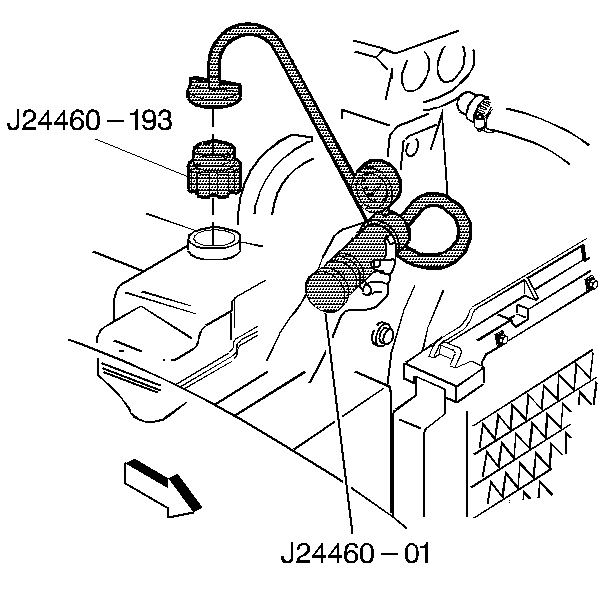Testing Procedure
Tools Required
Important:
| • | During vehicle operation, a slight amount of weepage may occur
at the coolant pump vent hole. Tracks of residue may occur from the lower
vent hole. Replace the coolant pump only if the coolant is dripping from the
vent hole during engine operation or pressurizing the cooling system. |
| • | Correct any minor coolant weepage and minor engine cooling system
leaks by adding 2 sealant pellets, GM P/N 3634621, to the cooling system.
Crush the pellets before placing the pellets inside the coolant recovery reservoir. |
- Properly position and secure the radiator hose clamps and the
heater hose clamps.
- Inspect the hose connections for leaks. Repair any leaks as required.
Caution: Do not remove the coolant recovery reservoir cap while the cooling system
is hot. Serious personal injury may result. Only remove the cap from a cool
engine.
Notice: Do not use pressure greater than 138 kPa (20 psi) to test the radiator.
Damage to the radiator will result if a higher pressure is used.
- Remove the coolant recovery reservoir cap.
- If necessary, fill the cooling system to the FULL COLD mark.

- Attach the female threaded adapter J 24460-193, part of J 24460-92
, to the coolant recovery reservoir
(1) filler neck.
- Pump up the pressure to no more than 138 kPa (20 psi).
- The system should hold the pressure for at least 2 minutes.
| • | If a measurable amount of pressure drops in less than 2 minutes,
check for a leak. |
| • | A leak may be internal or external. If no visible leak is found,
including the heater core, disassembly of the engine may be required. Refer
to Engine Mechanical. |

